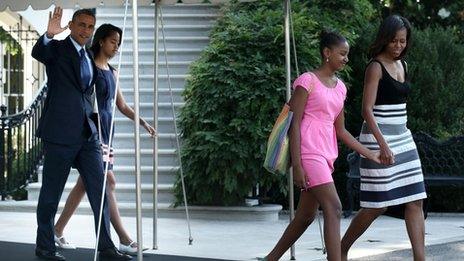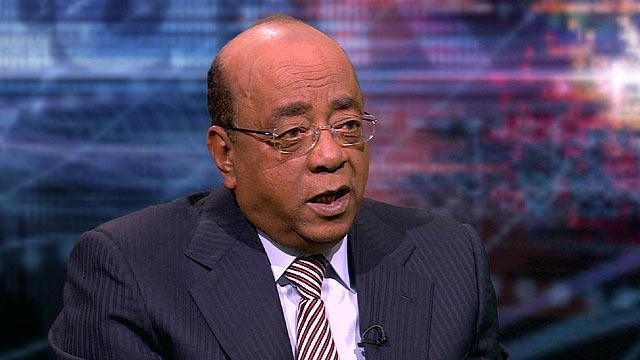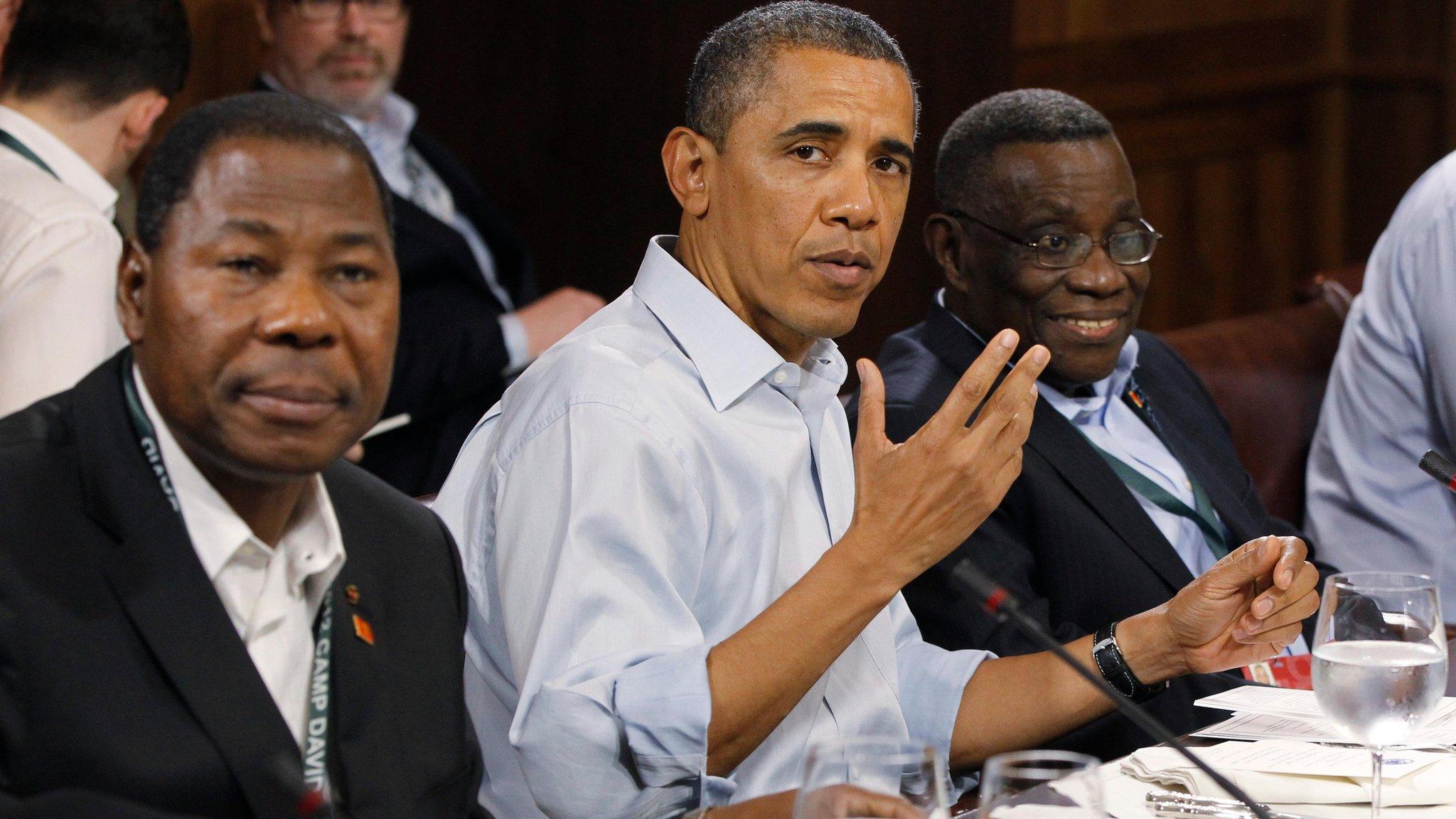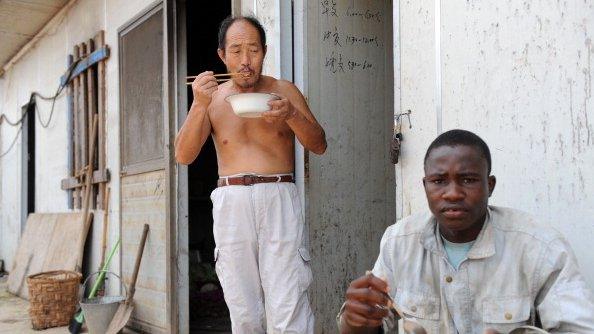Obama in Africa: Too little too late?
- Published
- comments
A handful of anti-US protests have focused on Mr Obama's foreign policy, but he has been broadly welcomed, as Andrew Harding reports
If US President Barack Obama's first, brief visit to the continent four years ago was characterised by inflated expectations followed by a lingering sense of disappointment; his second tour of Africa is taking place in a rather different atmosphere.
For a start, there is the inevitable preoccupation here in South Africa with Nelson Mandela's state of health - and the fear that it might entirely overshadow the American leader's trip.
Then there is the narrative of failure and criticism that any leader can probably expect after four-and-a-half years in power, and which is manifesting itself in South Africa with protests planned by various prominent groups, with a particular focus on American economic and foreign policies.
There has been criticism back home too that Mr Obama's three-country trip - heavy on presidential security - is costing too much, external.
And across Africa - while there is an appreciation that America's leader has had plenty on his plate elsewhere, with the financial crisis and the turmoil in the Middle East - there is also a niggling belief that this trip has come a little late in his presidency, and that with Chinese investment flooding in, the US no longer carries quite such clout on the continent.
Nonetheless, in a region increasingly willing and able to engage with the world on an equal - and business-orientated - footing, Mr Obama's visit is still generating plenty of interest.
"It's good for Africa that President Obama is coming," said Jeff Nemeth, the South African head of the US car manufacturing giant Ford.
"He's been on record as saying that Africa is potentially the next economic success story, and his coming here serves to cement that vision."

The first family will be arriving in Senegal on Wednesday night
Ford's output here has almost doubled in three years.
"The economic boom in sub-Saharan Africa feels real to me," said Mr Nemeth, who is hoping that President Obama can help nudge governments on the continent to "focus on things that will drive economic growth… education, infrastructure support, good governance and good financial systems".
'There is hope'
China's leaders make many more visits to Africa these days than they used to - and the deals they sign generate plenty of headlines here.
But there is still something much more intimate about a visit by an American president - particularly one with an African heritage.
"I'd like to tell him: 'Look at us - there is hope,'" said Zineb Oulmakki, a Moroccan student at the African Leadership Academy outside Johannesburg.
"There are a lot of prospects for this continent.
"There will be a lot of growth - I'm certain of that. Soon we will not be reliant on aid. We will be a major leader in the global economic context."
Ethiopian student Eyerusalem Assefa said: "We worry a bit about China. They don't give good salaries sometimes. It must be a win-win situation with no-one being exploited."
As for the idea that China and the US are battling for control of the continent's resources, Mr Nemeth said he had no sense of that, and stressed instead what he saw as the advantages of US businesses.
"We have a very strong sense of good governance, and that's what American companies bring and it gives us a space in business that is somewhat unique," he said.
"We can generate returns in a way that we believe is more supportive to the communities and countries in which we work.
"In the long run, people want to work at a place that has integrity, and people want to live in a country that has integrity, and as the middle class grows and becomes more involved in the governance and politics, they'll demand that too - it's just the way it evolves."
For Kenyan student Maimuna Abdi Yussuf, the visit is a good opportunity for the continent.
"We're ready to take Africa to the next level," he said.
"We need collaboration between America's entrepreneurs and ours."
- Published11 June 2013

- Published7 November 2012
- Published14 June 2012

- Published22 May 2012
